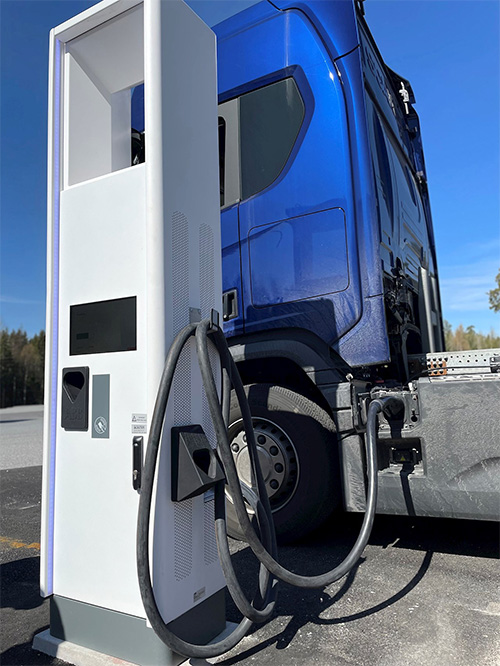Scania has successfully installed and tested a pilot Megawatt Charging System from ABB E-mobility. Deploying this high-power charging solution could enable operators to halve the charging time for heavy-duty vehicles, says Scania.
Scania calls the testing, which was done to prove the technical viability of high-current charging, a first important step towards a future system, which will result in the progressive deployment of high-power MCS chargers, starting with current levels of 1,500 amps and eventually delivering the full MCS scope of up to 3,000 amps.
Scania and ABB E-mobility have both been instrumental in developing MCS in collaboration with CharIN (the MCS standard is expected to be finalized in 2024).

Scania calls MCS technology “critical” for long-haul electric trucks, as both driving time and resting time for drivers are regulated by law. In some jurisdictions, a commercial vehicle can be driven for a maximum of 4.5 hours before the driver needs to take a 45-minute break. During this time, the truck needs to add enough energy to the battery to operate for another 4.5 hours. Due to the size of the batteries, fast, high-power charging is essential.
“We see momentum for electric transport, and our goal is that 50 percent of all vehicles we sell annually by 2030 are electric,” says Fredrik Allard, Head of E-mobility at Scania. “To achieve this goal will require infrastructure, and MCS is a crucial piece of the puzzle.”
Scania is now offering trucks with the MCS pre-standard connector to customers with specific needs, and production is set to begin in 2024. ABB E-mobility will introduce the next iteration of its MCS technology in late 2024/early 2025.
Source: Scania